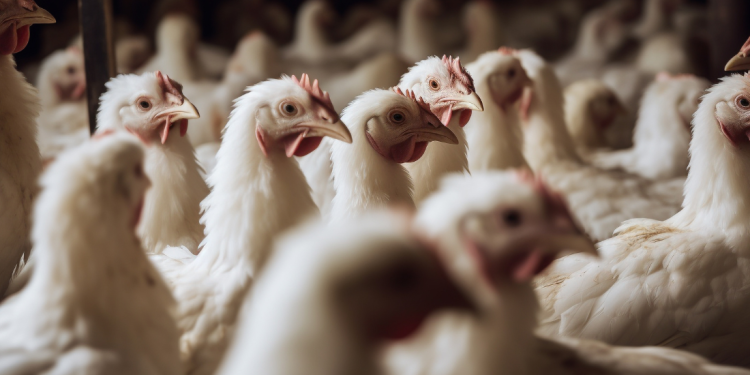By Ndumiso Tshuma
Maintaining chicken health is essential for productive and sustainable operations in poultry farming.
A significant challenge for farmers is the outbreak of coccidiosis, a parasitic disease that can seriously impact chickens’ growth and survival if left unaddressed.
Dr Enoch Machingauta, a Poultry Health Care Specialist at Econutrivet, explained that coccidiosis spreads primarily through contaminated feed and droppings, thriving in unsanitary conditions like unclean floors or sheds.
“When this disease infects the chicken’s intestines, it spreads within, causing internal bleeding,” Machingauta said.
Symptoms of coccidiosis include a noticeable lack of appetite, low energy, feather deterioration, and bloody or foamy stools. According to Machingauta, if the infection is not treated quickly, these symptoms can lead to stunted growth and, in severe cases, death.
“The chickens struggle to eat and drink properly, leading to poor growth,” Machingauta noted. “Signs include low energy, ragged feathers, and bloody or foamy stools.”
To combat this threat, Machingauta noted the importance of strict hygiene practices, which include maintaining clean feeders, providing fresh water, and ensuring dry bedding. These measures can significantly reduce the risk of infection.
“A farmer must maintain strict hygiene at all times, keep food in clean feeders, provide clean water, and ensure chickens are kept on dry bedding,” he said. “Chickens should not live in wet areas; good ventilation is crucial for biosecurity. If symptoms of coccidiosis appear, medicines like Endocox, Sulfacox, ESB3, or Bremamed can be used.”
Machingauta also introduced an innovative preventive measure: adding charcoal to chicken feed. Incorporating 1-1.5% charcoal in their diet, he said, can greatly improve their overall health.
“Charcoal acts as a laxative, helping to expel impurities from the body. Poultry feed with 1-1.5% charcoal has shown increased egg-laying rates, extended laying periods, and heavier eggs,” Machingauta explained. “Charcoal improves digestion, promotes gut health, and enhances nutrient absorption by binding and removing toxins from feed and water.”
He added that charcoal can reduce ammonia odours in coops, aid in expelling worms and parasites, and prevent certain bacterial infections.
“Incorporating charcoal improves nutrient absorption, leading to healthier birds,” Machingauta added. “It helps expel worms and parasites, reducing competition for nutrients, and has antibacterial properties that prevent certain infections.”
As temperatures cool across the country, Machingauta advised farmers to monitor their chickens closely. Like dogs, chickens don’t sweat; they pant to regulate their body temperature. As chickens grow more feathers for warmth, farmers should manage brooder heat with proper ventilation.
“As chickens grow, their feather coverage increases to help them stay warm,” he said. “When this happens, farmers need to use cooling methods in the brooder and ensure adequate ventilation to expel excess heat. It’s important for farmers to regularly observe their birds and adjust temperatures as necessary.”

